



Sprouts Farmers Market Drives Private Label Growth COVERAGE STARTS PG. 8































Sprouts Farmers Market Drives Private Label Growth COVERAGE STARTS PG. 8












































• Paper towels, bath tissue, napkins, and facial tissues.
• Flexible, custom manufacturing, packaging and displays.


Let’s talk about a customized household paper program that will boost your margins – a program you’ll be eager to put your label on. Drop by our booth or schedule a convenient time by contacting Steve Saraf, VP of Sales, at info@usalliancepaper.com.
• Full range of ultra, premium, FSC® Certified, recycled, and traditional paper grades.

• For lower volumes, we offer our pre-packaged Azure® Ultra Premium, Daisy®, Delicate Touch®, and Earth One™ store brands.






























THE INDUSTRY’S ONGOING TRANSFORMATION CONTINUES TO BOOST QUALITY AND PROVIDE CONSUMERS UNIQUE PRODUCTS AT A STRONG VALUE.


Those two words, at least to this writer, best describe the current state of the private label industry as we close out 2024 and head to the new year.
Following several years of significant expansion, the private label segment enjoyed another banner year in 2024, and more growth is expected in 2025. It has been fascinating to watch how the sales growth store brand products have seen is tied to an industry that is maturing.
I’ve been fortunate to cover aspects of private label throughout my career and have also leaned on industry professionals who have shared their experience and expertise with me. Also, reporting on a robust list of new private brand products over the past 12 months has shown me the differences in how retailers of all shapes and sizes are bringing their new items to market.
One notable change is the mindset of retailers when they talk about their product development efforts. Offering products that are national brand equivalents is a diminishing benchmark for many. Retailers want their products to be better than national brands in quality while also providing shoppers with a better value. The words “cheaper” and “less expensive” are disappearing from the vernacular of many, and packaging designs are immensely better than in previous years, which makes the items more attractive on shelf.
The other buzz word that is evolving from a trend to the way business is done and products are developed is differentiation. With each unveiling of a new private brand assortment, retailers talk about the need to offer consumers products that not only meet or exceed national brands, but also offer something unique that allows them to separate themselves from CPGs and retail competitors up the street.
For example, in food and beverage, we’ve seen more retailers develop snacks and drinks that are more than only a salty or sugary treat. Many have added attributebased products that are sugar-free, gluten-free, and offer solutions for those in need of a protein boost during the day. These types of products allow private label goods to stand out on crowded store shelves and web pages.
We’re looking forward to seeing continued ingenuity from an industry that has grown and matured in recent years. Retailers’ efforts to keep getting better and bring creative offerings will provide consumers with an improved product selection and money-saving options.



8550 W. Bryn Mawr Ave., Ste. 200 Chicago, IL 60631 773.992-4450 Fax 773.992.4455 www.storebrands.com
BRAND MANAGEMENT
Brand Director Eric Savitch 856-296-6357 | esavitch@ensembleiq.com
EDITORIAL
Associate Publisher/ Executive Editor Greg Sleter gsleter@ensembleiq.com
ADVERTISING SALES & BUSINESS
National Sales Manager Natalie Filster 917.690.3245 | nfilster@ensembleiq.com
DESIGN/PRODUCTION/MARKETING
Designer Bill Antkowiak bantkowiak@ensembleiq.com
Production Manager Jackie Batson jbatson@ensembleiq.com
SUBSCRIPTION SERVICES
List Rental mbriganti@anteriad.com
Subscription Questions contact@storebrands.com
Chief Executive O cer Jennifer Litterick
Chief Financial O cer Jane Volland
Chief People O cer Ann Jadown
Chief Operating O cer Derek Estey
The contents of this publication may not be reproduced in whole or in part without the consent of the publisher. The publisher is not responsible for product claims and representations.

Greg Sleter
prouts Farmers Market continues expanding across the U.S. as it builds off its success, offering shoppers a selection of natural and organic products.
A growing story within its assortment is Sprouts’ ever-expanding selection of private label items in categories across the store. In its fiscal year second quarter, Sprouts Brand products contributed 22% of total sales, a figure that has continued to rise in 2024, as 200 new own brand products hit store shelves in Q2.
The grocer’s continued private label growth has been a key factor in Sprouts’ robust sales increases in recent quarters. In the second quarter, total sales were up 12% to $1.9 billion and comparable store sales were up 6.7%. Also, a recent report from Placer.ai showed the grocer’s year-over-year foot traffic in the third quarter (July through September) was up 8.1%, far exceeding the industry average of 1.6%.
This growth in sales, its commitment to expanding its private label assortment, and the grocer’s ongoing store expansion efforts, were key factors in Store Brands choosing Sprouts Farmers Market as its 2024 Retailer of the Year.
“There are a lot of good things happening around the brand, and this award is validation for our team,” said Kim Coffin, chief forager for Sprouts Farmers Market. “Receiving this type of recognition is great.”
Jac Ross will tell you there are many reasons why Sprouts Brand products have grown and are resonating with shoppers. But the grocer’s vice president of Sprouts Brands, who earlier this year


was named to the Private Label Hall of Fame as a Private Brand Champion, said it all starts with a focus on one thing.
“It’s all driven by what our customers need,” she said. “We hear from our customers all the time and they tell us what they want, what they need, and what they don’t want as well. And we need to react to that.”
With the needs of its customers top of mind, Sprouts uses this information as part of its category review process. This allows the grocer to decide whether a currently available national brand will work to meet a specific need, or if there is an opportunity to develop something new to be sold under the Sprouts Brand, which also provides an opportunity to offer shoppers something unique.
“It’s not as if we’re developing hundreds of products and hope some of them stick,” Ross said. “It’s a very thoughtful process to identify what we are missing in our assortment.”



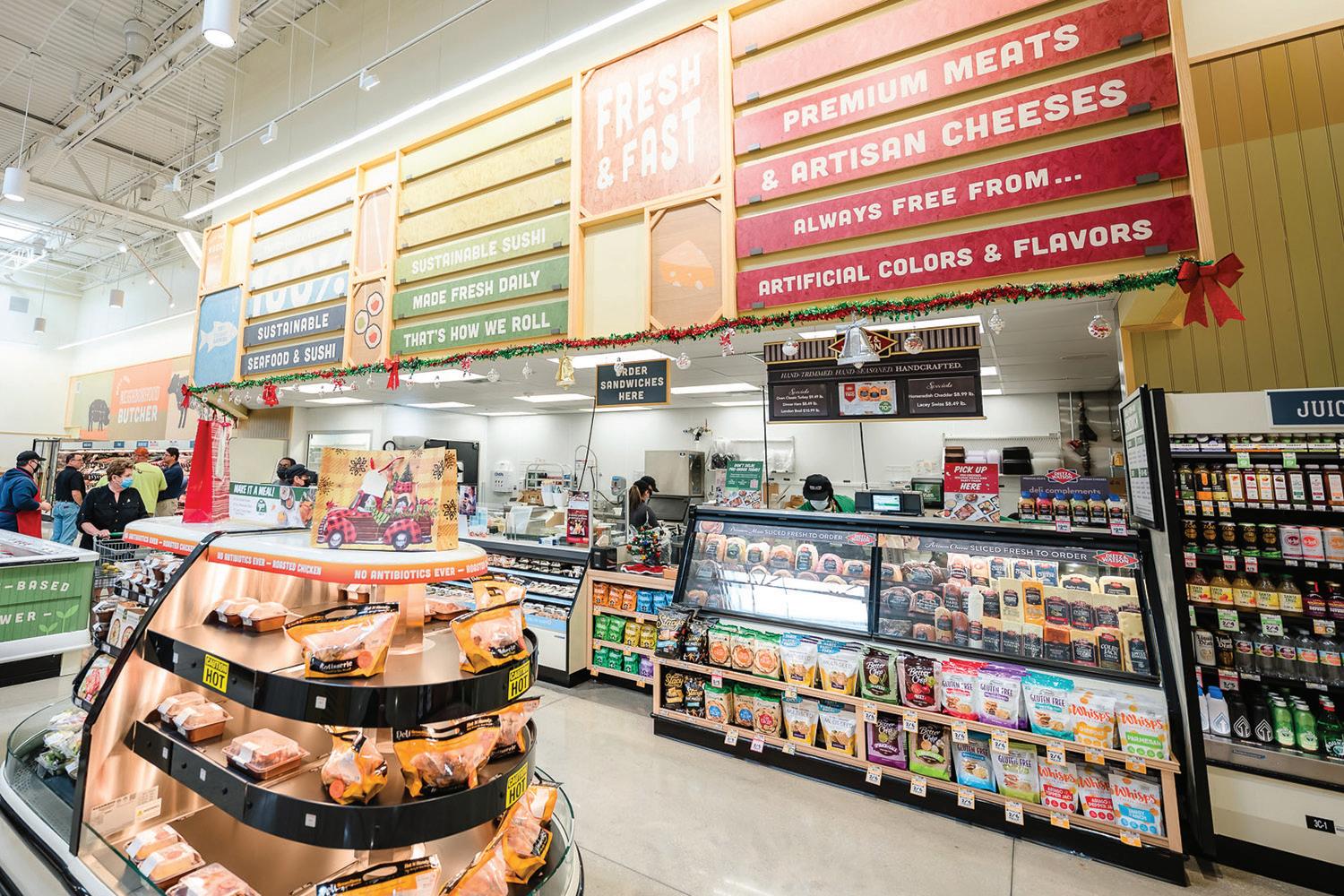
An important aspect of Sprouts’ product development process is the grocer’s focus on organic products. With about half of Sprouts’ own brand products classified as organic, product developers have some added pressure to offer items that meet this standard while ensuring they provide quality, taste, and value to shoppers.
Coffin said this focus on healthy ingredients does make developing new products more challenging at times, but the partnerships Sprouts has with its suppliers and the continual learning process have made bringing new items to market easier over the years.
“Our teams are focused on working with our suppliers to develop products that aren’t just off the
We work with a lot of different suppliers, and they understand and buy into what our customers are looking for. They know if we get it right, then we are rewarded by shoppers coming back over and over again to buy their products.
— Jac Ross, Sprouts Farmers Market

















The California Milk Advisory Board’s (CMAB) mission is to increase demand for products made with Real California Milk. This is accomplished through creative advertising and public relations using various channels, retail and food service promotion and support, product development/innovation, and industry partner collaborations.
Q: What should retailers know about the California dairy industry?
A: California produces more than 18% of the nation’s milk supply and approximately 46% of that is made into cheese. California dairy farm families have a multigenerational legacy of producing quality milk. Even today, 99% of California farms are family-owned. The state also exports about one-third of its total milk production, which equates to more than $1.8 billion.
California is rich in processing capabilities across almost every dairy category including fluid milk, cream, creamers, yogurt, sour cream, cottage cheese, ice cream, mainstream cheese, artisan cheese, Hispanic and ethnic cheeses, evaporated milk, and much more.
The state has the nation’s most rigorous sustainability requirements, which means California farmers are focused on reducing their climate impact including methane emissions through a comprehensive five-part strategy that includes efficiencies, methane avoidance, methane capture and utilization, enteric methane reduction, and research and innovation.
Q: As we look toward 2025, how is the California dairy industry dealing with the issue of sustainability?
A: We are proud to lead the nation in sustainable farming and farming practices.

Our farmers aim to ensure the long-term sustainability of California’s dairy production through environmental stewardship, responsible animal care, and community building. The state is on target to reach an ambitious state dairy methane emission reduction mandate by 2030. This includes using methane digesters to turn manure into renewable fuels. Cow power from our farms is currently fueling more than 17,000 vehicles in the state.
Q: What does the CMAB offer?
A: The CMAB supports the industry in many ways but there are three key areas of focus: Processor Partnerships, Business Development, and the California Dairy Innovation Center.

California Milk Advisory Board
2156 W. Grant Line Road, Suite 100, Tracy, CA 95377 (209) 883-6455
askus@realcaliforniamilk.com
The Processor Partnerships team fosters relationships with more than 200 dairy processors by providing analytical and consumer insight support to grow their categories. This team also connects processors with new and existing retail and foodservice partners to increase sales and volume in all dairy categories. Think of the Processor Partnerships team as a go-to solution for dairy sourcing needs from filling capacity, finding new or existing capabilities and commercializing new innovative ideas.
The Business Development team drives sales and awareness for products with the Real California Milk (RCM) seal through annual promotion planning. This team supports retail promotions through product demos, IRC coupons, and also by collaborating with retailers to jointly plan awareness initiatives using a variety of channels from shopper marketing to social media.
The California Dairy Innovation Center (CDIC) is a virtual center focused on stimulating innovation in California dairy by bringing together producers, processors, and educators. The CDIC leverages the University network to coordinate pre-competitive research and education training, including short courses and symposia aimed at teaching students and professionals about products, processing, innovation, and everything in between.
Q: Who can work with the CMAB?
A: We welcome any retailer, operator, or brand interested in growing their dairy offerings using Real California Milk.
shelf,” she said. “There may be some extra steps in the process, but for us, that is what we need to do to develop the types of products our customers expect from us.”
When walking through a Sprouts store, it’s easy to see the impact the Sprouts Brand has in all categories. Today, the grocer’s own brand assortment ranges from everyday staples to items that could be considered innovative specialty products.
As an example of this broad product range, Ross highlighted grocer assortment must-haves such as its private label frozen vegetables to a unique selection of nondairy frozen desserts made with cashew milk as one of the more interesting items shoppers can find in stores.
And while the Sprouts Brand can be seen on a disparate selection of products across the store, the commonality among all items is the grocer’s commitment to providing shoppers with healthier products.
“We take pride in curating an assortment that resonates with our target customer who is looking for better-for-you products,” said Coffin. “Across our stores, with branded and Sprouts branded products, more than 70% of what we sell is attribute-based products, whether they are organic, gluten-free, plant-based, grass-fed, and so on. Giving our customers the products they are looking for has been a differentiator for us.”
With Sprouts having a sharp focus on the needs of its customers, it is supported by what Ross said are “incredible supply partners.” Those vendors work hand-in-hand with the specialty grocer to develop items that meet various attribute-based needs shoppers are seeking to fill while ensuring products are sold at a strong value.
“We work with a lot of different suppliers, and they understand and buy into what our customers are looking for,” Ross said. “They know if we get it right, then we are rewarded by shoppers coming back over and over again to buy their products.”
When developing an assortment that is focused on healthy attributes, maintaining product quality is vital. But Sprouts also works to match that quality with price, to ensure its shoppers are getting a quality product at a good value.
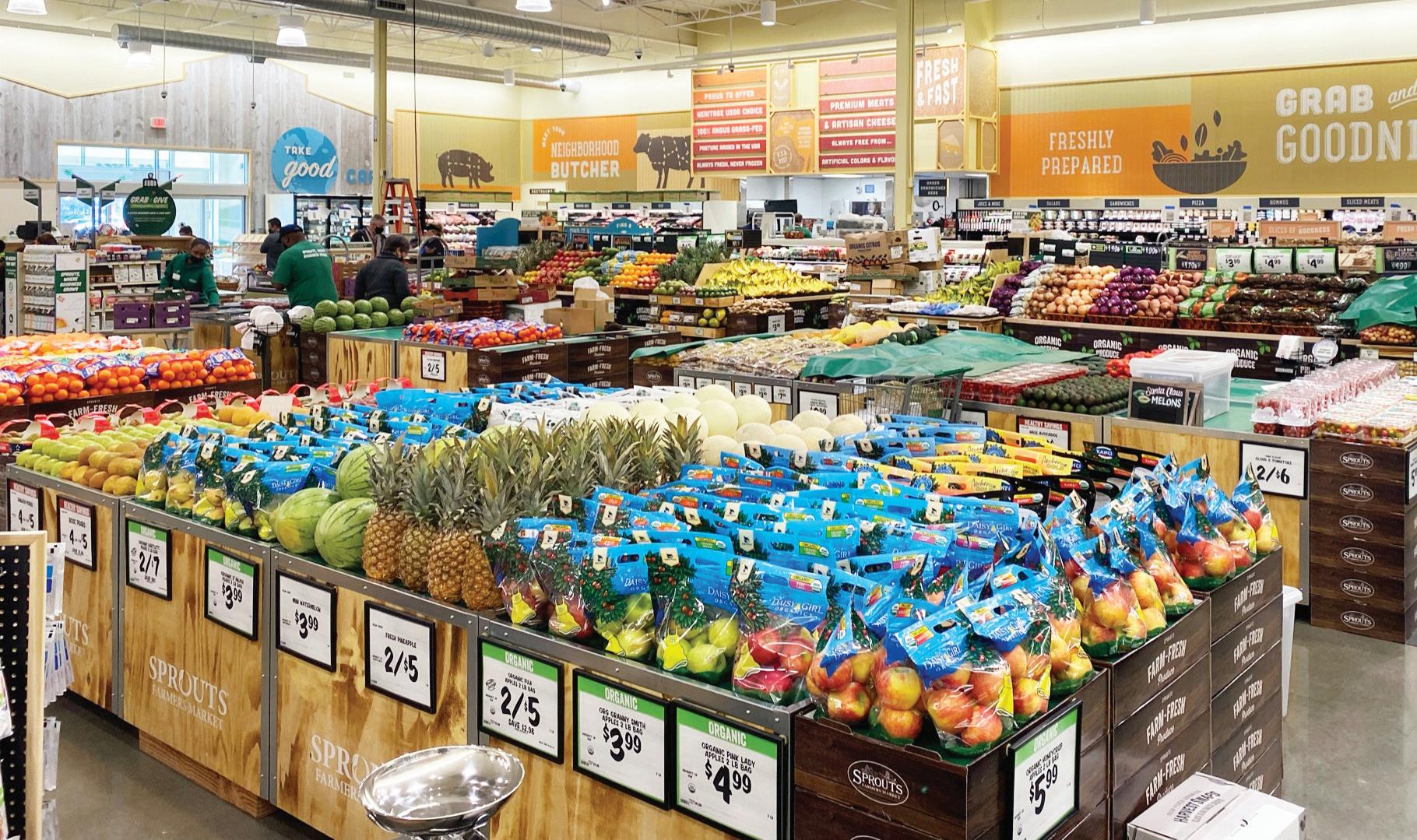
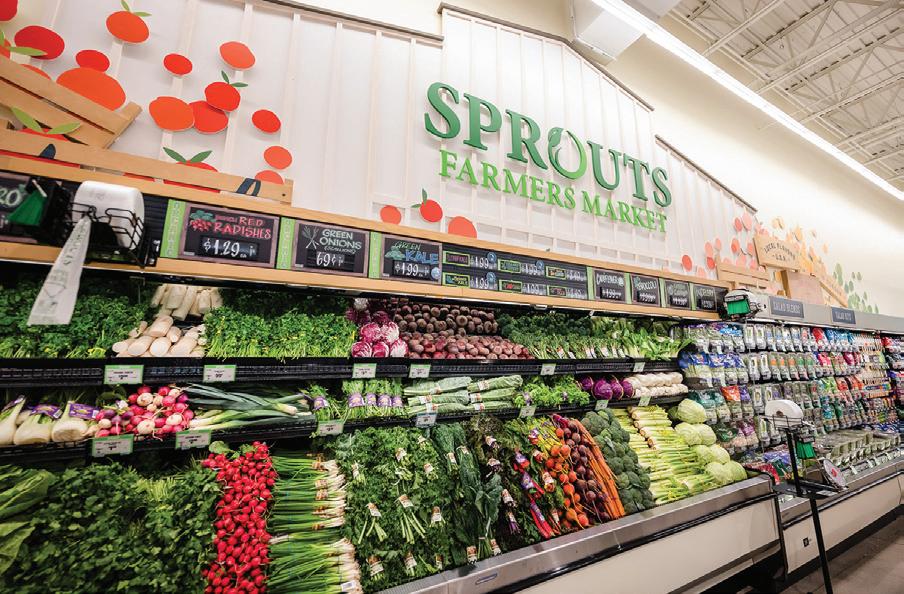
“There’s not one specific answer to how we get the quality and value of each item right. It’s a balance,” she said. “We test our products multiple times before they reach the shelf, and what hits our stores is not just one person’s decision. It’s multiple people. We’ve had products that are a great value but did not hit the quality that we expect or we think our customers expect. Those products are not approved.”
In addition to its focus on providing quality products, Sprouts has also upped its game when it comes to how those items are packaged and presented in-store. Part of the work to raise and maintain awareness of its own brand assortment is the effort over the past two years to redesign product packaging, a trend seen more recently as retailers seek to position their private brands as brands that are equal to or better than national brands.
Ross said Sprouts has devoted time to redesigning and refocusing the look of product packaging. In addition to upping design aesthetics, the grocer has used the real estate on each item to highlight its special aspects, allowing shoppers to more easily understand what they are buying and how a given product meets their needs.

She also credits the work of store personnel in their efforts to raise the profile of Sprouts branded products. This includes the Discovery Days promotion in stores that spotlights the grocer’s private label products, allowing consumers to sample items they may not have previously seen when shopping.
While Sprouts Farmers Market as a whole, and more narrowly its private brands team, have enjoyed success in recent years, the retailer is not slowing down.
On the private label side, Ross said her team will keep doing what they have been doing, which is continuing to develop differentiated, attribute-led products that are sought after by Sprouts’ shoppers. An example of this is the recently released Real Root by Sprouts assortment of personal care and wellness products.
Unveiled in October, the new line includes more than 130 body care, personal care, and home fragrance products. According to the grocer, all items in the line are made cruelty-free while also



Our teams are focused on working with our suppliers to develop products that aren’t just off the shelf. There may be some extra steps in the process, but for us, that is what we need to do to develop the types of products our customers expect from us.

being free from parabens, phthalates, artificial fragrances, colors, skin irritants, or potentially harmful ingredients, and many are vegan.

The brand’s products were designed for customers to create their own restorative, relaxing wellness routines for daily use. Product formulas were developed with natural, effective ingredients such as shea butter, aloe vera, and essential oils that benefit the skin.
“I’m extremely excited about the launch of Real Root,” Ross said. “We’ve had many of those products before launching the new brand, but I think the brand really resonates with our customers. This is a line we’re going to keep building and expanding.”
From a corporate perspective, Sprouts also continues expanding its store count. As of October, the grocer had more than 420 stores in 23 states, and additional grand openings for the fourth quarter are planned. Coffin said Sprouts will open 35 new locations in the fourth quarter, with 16 of those stores celebrating their grand opening over six days.
“Our new stores are from California to Florida, and we’re looking at filling in existing markets and moving into new markets,” she said. “There is a lot of white space for us, and our goal of 10% store growth annually is something that we’re very serious about.”
HERE ARE THE 10 CHAINS YOU SHOULD KEEP AN EYE ON IN THE COMING YEAR.
By Greg Sleter
It’s been another banner year for private label as retailers ranging from the biggest mass merchants to grocery stores, convenience store chains, drug stores, and department stores expanded their respective own brand assortments.
The conversation in 2024 evolved from one that was focused on price to retailers now regularly talking about the value proposition of their store brand products and using their proprietary assortments to differentiate from the competition.
With 2025 expected to see more private brand development, Store Brands has chosen 10 Retailers To Watch in the coming year. The following retailers in 2024 expanded their own brand product assortments, with more expected from each in the next 12 months.

A few years back, many in the industry were unsure of what role BJ’s Wholesale Club would play in the retail landscape. With the chain’s focus at the time on the markets it was serving, there were even rumors that Amazon might acquire it as the stores were viewed as points of distribution. My, how things have changed.
While facing direct competitors such as Costco and Sam’s Club, BJ’s Wholesale elbowed its way through the crowded marketplace and continues expanding westward into states such as Indiana and Tennessee.
Store expansion is still on the radar for BJ’s Wholesale, and within its new and existing locations is a growing assortment of private label products.
Its Wellsley Farms and Berkley Jensen brands have gained a loyal following over the years, offering high-quality alternatives to national brands at competitive prices. In 2025, BJ’s plans to further expand its own brand assortment, with a focus on organic, sustainable, and health-conscious options, tapping into growing consumer preferences for such products.
Private label sales at BJ’s Wholesale currently make up more than 25% of its total business, and continued own brand momentum has officials with the retailer confident they will soon hit their 30% penetration rate goal.
Among the successful private label launches by BJ’s in 2024 was its new line of food storage bags sold under the Berkley Jensen brand. The assortment of sandwich bags and freezer bags were priced as much as $10 less than similar products from a well-known national brand.
BJ’s is also targeting expansion beyond its current footprint. The company plans to open new locations in key markets, particularly in the Southeast and Midwest, where it sees growth potential. These strategic moves will enable the retailer to compete head-to-head with other wholesale giants like Costco and Sam’s Club.
Additionally, the club has also made strides in its digital transformation. BJ’s has been enhancing its e-commerce capabilities, with significant improvements in its mobile app and website, allowing for a seamless shopping experience. The company’s investments in curbside pickup, same-day delivery, and membership benefits like BJ’s Perks further enhance its appeal to modern consumers seeking convenience and value.

For Dollar Tree and Family Dollar, 2024 has been an interesting year, and as 2025 approaches there are questions remaining to be answered. In June, Dollar Tree announced it was reviewing strategic alternatives for Family Dollar, including a potential sale, a spin-off, or another disposition. As of press time, no decision on the future of the chain has been announced.





































































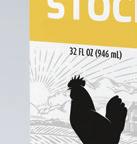























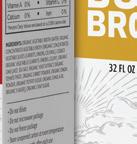











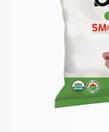

















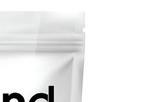








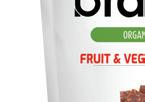



















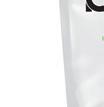
















































































































While Dollar Tree conducts its strategic review of Family Dollar, the company continued its “transformation,” with officials at the retailer reporting meaningful sales lift at the 1,600 Dollar Tree stores that converted to its in-line multiprice format.
Topping the list of things to watch at Dollar Tree is a decision on the future of Family Dollar. The ongoing review of its operations has not stopped Family Dollar from bringing new products to market. Most notable is the retailer’s partnership with First Insight to refine its assortment strategy to meet evolving consumer expectations. This will allow it to bring “groundbreaking concepts” to the market while also reducing the risk of markdowns.
Both retailers in previous years have expanded their respective assortments of private label products to meet the needs of shoppers seeking quality products at a good price. At Family Dollar, private label penetration rates at the start of 2024 sat at 14%, with store officials saying the retailer was on target to hit its penetration rate goal of 20% by 2026.
Dollar Tree CFO Jeff Davis previously said that as the consumer seeks greater value, they will have more options with the retailer’s private brand assortment.
“It’s an opportunity for us to improve our margins,” he said. “And, to the extent that there is sort of price deflation, there’s an opportunity to provide even more value as we think about how we sort that particular product line.”
The growth of own brand assortments at Dollar Tree and Family Dollar in the coming year will be worth watching, especially if prices continue to moderate.
In addition to private label growth, the company is rolling out new store formats to optimize shopping experiences. The Dollar Tree Plus! initiative, which offers items priced at $3, $4, and $5, is gaining traction, attracting a wider range of shoppers. Meanwhile, Family Dollar is focusing on store renovations and combining its formats with Dollar Tree under one roof in select locations to offer greater variety and convenience.

It’s been a busy 2024 for Gopuff. This year the e-commerce retailer launched its largest national brand campaign, “Bring The Magic,” which was focused on building awareness while also defining its next chapter. The company also expanded its private label assortment, adding a selection of premium products, and partnered with former NFL quarterback and current FOX broadcaster Tom Brady, who will collaborate with Gopuff on product development and content creation.
One of the key factors propelling Gopuff’s growth is its extensive network of micro-fulfillment centers, which allow the company to deliver a wide range of products in under 30 minutes. These
centers, strategically located, give Gopuff a competitive edge in meeting the rising demand for quick delivery of everyday essentials, snacks, beverages, and household items. As convenience continues to be a top priority for consumers in 2025, Gopuff is well-positioned to meet those needs.
Gopuff has also been expanding its product offerings, adding more private label items under its Basically brand. A notable addition this year was its Basically Premium line, which includes products said to be thoughtfully formulated and developed with the retailer’s customers in mind.
Items under the Premium assortment are made with fewer artificial colors, flavors, and preservatives, according to the company. New products include gluten-free Beef Sticks made with 100% USA Beef with no synthetic nitrates, nitrites, artificial flavors, or preservatives. The new line will also feature Basically Premium Coconut Water and Aluminum-Bottled Spring Water.
Strategic partnerships are another driver of Gopuff’s success. Collaborations with major brands, as well as food and beverage companies, have helped the retailer enhance its product selection and attract a broader customer base. In 2025, Gopuff is expected to continue forging partnerships that will fuel its growth and help it stand out in the crowded convenience delivery space.
With its cutting-edge delivery model, expanding private label assortment, and focus on convenience, Gopuff is set to be a major player in the evolving retail landscape during the year ahead.

Grocery Outlet is growing. With new stores popping up in key markets, the discount grocer also expanded its presence in the Southeast and South through its acquisition of United Grocery Outlet. The deal gave Grocery Outlet 40 additional stores along with a distribution center.
Additionally, Grocery Outlet this year also launched its first private label product assortment. The SimplyGO brand includes beverages, dairy, baking, pasta, home essentials, and pet products. The grocer was expecting to have as many as 100 private label SKUs in stores by the end of 2024.
Consumers’ quest for money-saving options was a key driver of growth for Grocery Outlet in recent years. As prices moderate, will the grocery be able to keep those shoppers while looking to expand



















its customer base to consumers in higher income levels?
One key to its continued success is opportunistic buying, which allows Grocery Outlet to acquire excess inventory from manufacturers and pass the savings on to shoppers. This flexible sourcing model ensures a constantly changing assortment of products, creating a “treasure hunt” shopping experience that keeps customers coming back.
In the coming year, the grocer is expected to further capitalize on shifting consumer behaviors, especially as budget-conscious shoppers seek alternatives to traditional grocery chains. The retailer has been expanding its footprint, particularly in underserved markets, offering an accessible, affordable option for communities in need.
Private label should also play a significant role in the coming year. With more consumers gravitating toward store brands, the retailer’s growing assortment of exclusive private label items helps differentiate it from competitors while driving higher margins. This focus on value and exclusive offerings positions Grocery Outlet to capture a larger share of the grocery market in the coming year.
Grocery Outlet’s continued store expansion is also worth watching. While new stores are anticipated in the coming year, could the grocer continue to find opportunities to expand through acquisition? That question will be answered in the year ahead.

There’s no need to rehash the struggles of department stores in recent years. While many are now just distant memories, JCPenney is among the few that have navigated various challenges to remain a part of the U.S. retail landscape.
Following years of restructuring and strategic shifts, JCPenney has found a renewed focus on modernizing its operations while staying true to its heritage as a family-oriented retailer. Under new leadership and with a refreshed vision, the company is prioritizing omnichannel innovation, private label expansion, and an enhanced in-store experience to win over shoppers in the competitive retail landscape.
From a big-picture perspective, what steps will the department store take in the year ahead to keep shoppers engaged? Proprietary new product collections have been at the forefront this year as JCPenney continued developing apparel and home lines that meshed value and fashion with a touch of celebrity. For example, JCPenney this past spring launched a new men’s apparel collection through a collaboration with country music singer-songwriter Walker Hayes and iHeartRadio.
No stranger to private label, JCPenney has upped its game more recently to use its own brands as more than a value play. From its kitch-
enware line with Chef Jenny Martinez to a focus on educators with an apparel line inspired by the television program Abbott Elementary, the department store chain continued identifying opportunities to offer shoppers unique products that can’t be found elsewhere.
Additionally, JCPenney continues investing in the digital side of the business. With more consumers embracing online shopping, the retailer has ramped up its e-commerce capabilities to offer a seamless shopping experience across platforms. Its integration of new technologies, like enhanced mobile apps, curbside pickup, and improved personalization through data analytics, is aimed at attracting a younger, tech-savvy audience.
JCPenney is breathing new life into its stores by modernizing the layout and enhancing customer service. The introduction of wellness zones, beauty sections with Sephora partnership expansions, and upgraded fitting rooms cater to the evolving preferences of today’s shoppers.

It’s been a strong year for Sam’s Club. A year after being named Store Brands Retailer of the Year, the Walmart-owned warehouse club has kept the momentum going. Sales are up, new stores are in the works, and the retailer is utilizing new technology to make the shopping experience easier for its members.
Additionally, its Member’s Mark own brand continues to play a major role in the retailer’s growth. New products across multiple categories continually roll into stores, and Sam’s Club works with its members to select which products make the cut and which don’t.
Let’s start with Member’s Mark. In 2022, Sam’s relaunched the brand with the help of thousands of members, and the work hasn’t stopped. Building off its success in food and beverage, Sam’s own brand throughout 2024 has gained more shelf space, offering shoppers quality products at a strong value.
A big reason for the success of Member’s Mark is Sam’s Club’s go-to-market strategy with new products. The retailer’s Member’s Mark Community, an opt-in network, allows participants to vote on exclusive flavors and test and trial new items. Company officials said the continuous flow of feedback is the cornerstone for guiding the large-scale development of products to ensure new items align with members’ needs and preferences.
“We don’t send [Member’s Mark-branded] products to our clubs without member approval,” Myron Frazier, vice president of Mem-








































































































































































ber’s Mark, told Store Brands.
Continued growth of Member’s Mark in the coming year will be worth watching.
Beyond its private label assortment, Sam’s Club has also made investments in technology, with a focus on making the shopping trip to its big boxes easier and perhaps more enjoyable.
The retailer has made strides in blending the physical and digital shopping experience, with a robust e-commerce platform, an intuitive mobile app, and the expansion of Scan & Go technology, which allows members to shop and pay using their smartphones. This techforward approach is designed to meet the demands of today’s convenience-driven consumers while enhancing operational efficiency.

Where once there were many regional office superstores, now there are only two national players. As the retail landscape has changed in recent years, Staples has been able to survive and remains an important retailer in the office products space.
As the workplace continues to transform in the wake of hybrid and remote work trends, Staples has shifted its focus toward meeting the needs of businesses and consumers in this new landscape. Through strategic diversification, expansion of its services, and investment in technology, the retailer is poised for growth.
From a product perspective, how Staples moves forward with its private label strategy will be worth watching. Private label is not new to the office superstore, but the expansion of its own brand effort has been notable.
For example, Staples Pick Me Up Provisions, a 2024 Store Brands Game Changer, is touted by the retailer as the first food and beverage private brand to target the B2B space and specifically the breakroom. With offices around the U.S. coming back to life following the pandemic, the need for products to help workers recharge during the day has become a critical factor in driving productivity.
Pick Me Up Provisions includes beverages and snacks at a good value. In developing the line, Staples took a page from traditional grocery and entered into the private brand consumables space in a more meaningful way.
Additionally, the retailer is focusing on tech-enabled services such as IT support, cloud solutions, and printing, which are critical for small businesses and remote workers alike. Its in-store and online
services, combined with a more personalized approach through its Staples Connect platform, make it easier for businesses to manage everything from office supplies to complex tech needs.
Staples is also enhancing its sustainability efforts, which are becoming increasingly important to consumers. By offering eco-friendly products and services, and pushing initiatives like recycling programs and sustainable office solutions, Staples is positioning itself as a responsible choice for today’s environmentally conscious shoppers.

As with its drug store competitors, Walgreens continues evolving to maintain and further strengthen its position in the crowded health & wellness space. Broadly, the company in 2024 has reduced store count while also looking to develop new ways to enhance the customer experience.
One such way to make shopping its stores more pleasurable while differentiating from the competition is the enhancement of its private label offerings.
In June, Walgreens CEO Tim Wentworth said the retailer would be taking a series of actions and making investments to enhance the experience for its customers. As part of this effort, the company is reevaluating its assortment to ensure the relevancy of the products it carries, leveraging select partners and its own brands.
“This means we will work with fewer partners who are helping us win,” Wentworth said earlier this year. “We’ve removed eight national brands and redeployed those SKUs toward own brands and preferred partners within health and wellness categories.”
While Walgreens, as of press time, has offered few specifics on its effort to remake its product assortment and focus on private brands, there have been some clues throughout the year.
The first is Walgreens’ expansion of its Nice! brand with the debut of the Nice! For You line of products, which the retailer positions as a “new tier” for the private brand.
According to the company, Nice! For You products do not contain artificial flavors, artificial sweeteners, synthetic dyes, or high-fructose corn syrup. Many Nice! For You options are also organic and glutenfree, which is stated on the packaging.
The second is the expansion of Walgreens’ own brand assortment of beauty products with the launch of a premium skincare line the drug store chain is touting as premium quality products without a premium price tag. The assortment sold under the Walgreens brand
includes a variety of products including cleansers, exfoliants, serums, creams, and masks.
By enhancing its assortment of exclusive, affordable products across health, wellness, beauty, and grocery categories, Walgreens is competing more effectively with other major retailers, both in the traditional and online spaces. Shoppers are seeking more affordable alternatives, and the retailer is meeting this demand with high-quality private label offerings. How it builds on this effort in 2025 will be something worth watching.

For consumers, shopping at Wegmans is more than just another trip to the grocery store. Each location is a sensory overload where shoppers have access to fresh baked goods, prepared meals, and a broad selection of products along with the standard items one would expect to find in a grocery store.
Most notable is the continued growth of private label products at Wegmans. As more consumers in recent years turned to private label products, seeking more bang for their buck, the regional grocer has continued to expand the presence of its own brand products around the store.
Wegmans has long been recognized for its loyal customer base and exceptional in-store experience, but its innovative strategies and focus on expansion make it a retailer to watch in 2025.
One key aspect of Wegmans’ success is its commitment to private label products. The company’s private label offerings have expanded across a wide range of categories, including fresh food, groceries, and health and wellness products. These exclusive brands, known for their high quality, allow Wegmans to compete with larger chains by offering premium products at competitive prices. In 2025, Wegmans is expected to further capitalize on its private label strength, catering to consumers who seek both value and quality.
Sustainability also plays a central role in Wegmans’ future growth. The retailer has made significant strides in reducing its environmental footprint by focusing on sustainable sourcing, waste reduction, and energy efficiency. With consumer demand for eco-friendly practices on the rise, Wegmans’ sustainability initiatives are likely to attract more customers who prioritize responsible shopping.
Digital innovation is another area where Wegmans is excelling. Its app provides personalized shopping experiences, allowing custom-
ers to browse products, manage shopping lists, and take advantage of curbside pickup and delivery services. By continuing to enhance its digital capabilities, Wegmans is ensuring its appeal to tech-savvy

7-Eleven is representative of the growth private label products have seen in the convenience store channel. From the basics such as snacks and beverages to items ranging from ice cream to phone chargers and travel mugs, convenience stores continue pushing the envelope when developing proprietary products.
Throughout 2024, 7-Eleven has worked to expand its own brand assortment, launching new products in categories including water, sports drinks, juices, teas, and snacks, with more items expected.
Given 7-Eleven’s success with its private label products, it will be worth watching what’s next. The convenience store chain currently offers more than 900 store brand items across 50 categories, and its focus remains on sourcing quality ingredients to create differentiated products.
“We partner with manufacturers to produce these new and innovative items that are the first to market, the best in the market, and/or exclusive to 7-Eleven stores,” Nikki Boyers, 7-Eleven’s vice president of private brands, recently told Store Brands.
An example of 7-Eleven’s effort to develop unique, quality items that Boyers cites is the convenience store chain’s collaboration with Miracle Seltzer on the launch of a sparkling water line sold under the 7-Select brand. The assortment features flavors such as lemon-lime, green apple, and sweet orange.
Beyond the growth of its private label assortment, 7-Eleven continues to look for opportunities to expand. The company has been opening new locations, and its recent acquisitions and partnerships, including the acquisition of Speedway stores in the U.S., have expanded its footprint, allowing it to serve an even broader customer base.
7-Eleven has embraced technology to enhance the customer experience. The company has heavily invested in its mobile app, integrating features such as mobile ordering, delivery services, and the 7NOW delivery app, which offers on-demand delivery of snacks, beverages, and essentials.
The app’s loyalty program, 7REWARDS, continues to drive customer retention by offering personalized discounts and promotions. With the rise of convenience-driven shopping behaviors, 7-Eleven’s digital ecosystem positions it as a leader in the quick-service retail space.






























The year was 1954. In the tiny town of Angri, in the province of Salerno, Italy, Diodato Ferraioli and his wife Anna were imagining the future, wondering how they could build something lasting from their understanding of the world and the changes it was going through.
That quest led them on a journey of discovery that uncovered how the riches of the region, which lies at the heart of Italy’s culinary heritage, made it ideal for tomato processing.
As La Doria celebrates its 70th anniversary, Store Brands explores how the company has overcome challenges — everything from an earthquake to technological advances to evolving consumer demands — and blossomed into a leading manufacturer of private label tomato products and pulses for the retail grocery industry.
The 1950s and 1960s: New Products, New Markets
Three years after the Ferraiolis embarked on that life-changing journey, the La Doria trademark was officially registered for the sale of peeled tomatoes and tomato paste in Italy; the company also began exporting products to the U.S. The 1960s brought the addition of spiced sauces, pickled vegetables, vegetables, legumes, fruit juices and canned fruit in syrup to La Doria’s lineup of products, and exportation to the UK began.
1970s and 1980s: Exciting Changes,
The 1970s saw La Doria add pulps and purees to its growing roster of tomatobased products; transform from The Diodato Ferraioli Fabbrica Conserve Alimentari factory to into La Doria S.n.c., a company owned by Diodato Ferraioli &. Co.; expand to Arab countries, plus France, Germany and Australia; and start selling private label products in the UK.
The 1980s started on a bright note. Several family members came aboard, and a new investment plan was put into play. The celebration was short-lived. An earthquake that ravaged the region led the company into receivership in 1982, and founder Diodato Ferraioli passed away in 1983 — challenges that might have seemed insurmountable. But Ferraioli’s sons Antonio and Andrea were undeterred. They took the reins of the company and led it out of receivership in 1984. And La Doria prospered once again.
The 1990s: Acquisitions, Joint Ventures, New Production Capabilities
A focus on the future was the hallmark of the 1990s — a decade in which La Doria was listed on the Italian Stock Exchange; acquired pasta sauce












and canned tomato companies; launched a joint venture with Gerber Foods to market La Doria products in Great Britain; and ultimately took control of Gerber — LDH (La Doria) Ltd., becoming the supplier of choice for many of the UK’s best-known retail chains.
As the decade came to a close, La Doria took over a production site in Sarno and established new plants, packaging lines and a storage area in anticipation of the growth the new century would bring.
The 2000s: Impressive Investments, Increased Market Share
La Doria welcomed the new millennium with a massive investment in infrastructure and technology intended to increase volumes and efficiency while reducing production costs.
Those funds fueled acquisitions that helped the company become the second largest Italian producer of fruit juices and fruit-based drinks (and the first in private label); expand overall production capacity of tomato-based products by 30 percent; and become the first Italian manufacturer of private label ready-made sauces.
The introduction of ready-made Vegan Pesto, Vegan Bolognese, and Plant Based Ragu, and a pledge to pursue a path focused on sustainable production (particularly noteworthy in the company’s tomatoes that are 100 percent cultivated in Italy) are among the highlights of a decade that has seen La Doria’s market share increase in Italy and in Great Britain, Australia, Japan and Germany. The company also will continue to invest in and expand its presence in the U.S. market thanks to a partnership with Winland Food.
The legacy that Diodato and Anna Ferraioli built from an idea conceived in Angri so many years ago is an important one for retailers seeking to expand their private label inventory to understand. It shows how a time-honored commitment to quality and innovation, plus a sprinkling of Italian passion, have fueled La Doria’s 70 years of success — the same qualities that will continue to light its path in the years to come.







Foods
Lifetime Achievement Award
For nearly 18 years, Paula Klassen has played a pivotal role in ensuring the highest standards of safety and quality at TreeHouse Foods.
First joining the private label product supplier in 2007 as director of Food Safety and Quality Assurance, Klassen today serves as vice president of Food Safety & Quality at TreeHouse. The 2024 Top Women In Store Brands Lifetime Achievement honoree is responsible for building capabilities with her team and across the company’s operations.
“I am beyond grateful and honored to receive this recognition,” said Klassen. Having been in the store brands food safety & quality space for so many years, it’s been exciting to see the growth of store brand products and offerings. I hope that I’ve contributed just a tiny bit to increasing consumers’ appreciation for, and confidence in, the quality and safety of store brands.”
Over the past year, Klassen implemented
By Greg Sleter
For more than a decade, Store Brands and Women Impacting Storebrand Excellence (WISE) have teamed to honor women across the private label industry who have had and continue to have a major impact in the store brand segment.
From supply chain to sales, marketing, finance, and more, members of the Class of 2024 each play a vital role in moving store brands forward amid new and ongoing challenges that include rising prices, capacity issues with manufacturers, and evolving demand from consumers.
Meet this year’s Top Women In Store Brands honorees.

advanced systems and statistical process controls that have significantly reduced quality incidents and consumer complaints.
Her focus on predictive quality management has empowered operators to make timely adjustments, ensuring that TreeHouse Foods continues to deliver safe and high-quality products to its customers.
Her leadership style is hands-on and collaborative. She spends much of her time in TreeHouse’s manufacturing facilities, coaching site leaders and hourly employees
to embrace a culture of quality. Her ability to inspire teams has been instrumental in embedding robust quality standards across the company, where employees are encouraged to proactively address potential issues before production even begins.
In addition to her internal contributions, Klassen has partnered with regulatory agencies to ensure TreeHouse Foods consistently meets or exceeds regulatory requirements. Her dedication to continuous improvement and excellence has strengthened TreeHouse Foods’ reputation in the industry as a trusted provider of safe, highquality private label products.
Klassen said many factors have contributed to her success over the years.
“The support system of my family, friends, and coworkers has certainly played a part in allowing me to be successful and focus on my career,” she said. “I enjoy building relationships at work, both with coworkers and customers. Gaining, and keeping, their trust is important to me. I stay humble and transparently admit when I don’t have the answers, but have the persistence to figure out the solution to a problem with science and data.”


Launching a new or seasonal product? Need specialty packaging? Exploring ways to cut production costs? With the help of SPG, sweet and snack companies can grow and scale without the risk or headache of investing in new packing machinery or training more staff.
Below we’ll answer some of our most frequently asked questions:
WHAT DOES A CO-PACKER DO?
A co-packer, otherwise known as a contract packer or contract manufacturer, is a specialized company that handles tasks like manufacturing, packaging, and even distribution. SPG’s range of services includes: Packing & assembly, shipping and receiving, warehousing & storage, inventory control, R&D/trials & testing, procurement for turnkey solutions, and lab & micro testing.

WHAT PACKING CAPABILITIES
DOES SPG HAVE?
• Form Fill
• Seal Bagging
• Stand-up Pouching
• Carton Packing
• Flow Wrapping
• Shrink-Wrapping
• Bundling

• Club Store Programs
• Specialty Packs
• Novelty Packs
• Auger & Cup Filling
• Nitrogen Flushing
• Blending
• Tub, Bottle & Canister Filling
DOES A CO-PACKER OFFER CUSTOM PACKAGING SOLUTIONS?
Partnering with a co-packer allows you to expand production and reduce production costs. You can introduce new or specialty product lines without the risk or headache of investing in additional facilities, equipment, or staff.



WHAT CERTIFICATIONS DOES SPG HAVE?
SPG holds eight safety and compliance certificates. We’ve worked very hard to maintain these standards because it opens doors for our clients, giving them access to markets and stores that require specific certifications.
Whether you’re looking to scale operations or launch a new seasonal line without the in-house hassle, SPG is your packing partner. Handling everything from packing and assembly to warehouse distribution, SPG partners with companies, both big and small, to expand and innovate seamlessly.
MEET US AT THE PLMA SHOW BOOTH #F3419
Jessica Gaudette
Daymon
Corporate Services Award
At the start of 2024, Jessica Gaudette’s career at Daymon took another step forward as she was named director of Process & Technology. That title fits the work Gaudette has done for the company in recent years as she spearheaded using technology to streamline processes, thereby revolutionizing how retailers approach private label products.
That work was also a key factor in Gaudette being named a 2024 Top Women In Store Brands honoree in the Corporate Services category.
“Receiving the Top Women in Store Brands Award has given me the opportunity to pause and reflect on all that has been accomplished over the past few years,” she said. “I’m incredibly grateful for the amazing teams I work with and for the supportive leadership in our company. Being nominated is truly an honor.”
Her colleagues were effusive in their praise for Gaudette and the work she has done in recent years. During a 12-month

period ending in July 2024, Gaudette successfully relaunched PLM Connect, a private-label management tool that has streamlined project workflows for three major retail clients and Daymon’s internal teams. With this tool in place, Daymon’s customers have reported a 30-40% reduction in project hours and an eye-catching 91% on-time project launch rate. Her ability to enhance efficiency and reduce timeto-market has made a significant impact on Daymon’s clients and the broader industry. Additionally, Gaudette introduced Trans-
formative Process Solutions, a service designed to streamline and optimize processes within private brands. This service, developed from the ground up, gained international adoption within six months, highlighting Gaudette’s keen understanding of industry needs and her ability to lead successful service launches.
Her colleagues also said Gaudette’s success shows that private brands are more than followers of national brands. With her leadership, Gaudette is demonstrating that one can have a successful career within the private label industry beyond sales, marketing, product development, and supply chain.
As for the success she has achieved, Gaudette said, “I’ve been fortunate to stay true to my passions: project management and process improvement, and these motivate me to continuously look for better ways of working. Collaborating with our cross-functional teams has also been essential as we collect business requirements, bring forward different perspectives, and translate those into technology solutions to drive more efficiencies into our daily work.”
Andrea Hatziyannis Sprouts Farmers Market
Marketing/Merchandising Award
While Andrea Hatziyannis has been with Sprouts Farmers Market for less than two years, she’s no stranger to the private label industry. Having worked for various consumer product goods companies as well as leading grocers, in her current role as category strategy manager at Sprouts, Hatziyannis is a pivotal figure in developing innovative products that drive growth and consumer loyalty.
Her role at Sprouts focuses on managing the grocer’s private label products in both bulk and frozen categories. Since joining the company in May 2023, Hatziyannis has quickly become a key player, leveraging her extensive background in food science and manufacturing to deliver category strategies that keep Sprouts on the cutting edge. Her ability to monitor, maintain, and optimize retail execution has been instrumental in expanding the store’s private label offerings.
These factors, among others, are why Hatziyannis has been named a 2024 Top

Women In Store Brands honoree in the Marketing and Merchandising category.
“Sprouts Farmers Market is a big reason why I am being recognized for this award because they celebrated my differences and gave me the space to thrive,” she said. “Never have I felt such a direct impact of my work driving the growth in the company and our Sprouts brand team overall.”
Colleagues said Hatziyannis’ leadership is marked by a strong commitment
to consumer-focused product development. By using market data and consumer insights, she creates solutions that address unmet consumer needs, translating them into distinctive products that set Sprouts apart from competitors. She also plays a critical role in vendor selection and negotiations, strengthening relationships with both cross-functional teams and Sprouts’ co-manufacturing network.
In recognition of her exemplary work, Hatziyannis has taken on expanded responsibilities in the bulk and frozen categories, which is a testament to her impact on the business in a short time. Her dedication to excellence and her informed perspective, gained from having worked on the manufacturing side at Ahold Delhaize US, have made her an invaluable resource to the team, colleagues said.
“My unique blend of technical and business skills gives me a voice to speak for the needs of both sides of the aisle,” Hatziyannis said. “Finding common ground within the industry between manufacturers and retailers has been key to my professional success, and it only continues as I grow and refine my skills.”
You See a Can. We See a Clock-Stopping, Flavor-Preserving, Perfection-Sealing, Tomato Vault.



Rachel Bukowski Whole Foods Market Innovation Award
During her eight years at Whole Foods, Rachel Bukowski has held several positions on the grocer’s product development team. But it’s the success in her current role as director of Research and Development that has earned her the 2024 Top Women In Store Brands Innovation Award.
“I am humbled and honored to be selected,” she said. “I also know that this formal recognition would not be possible without the drive and passion of the team behind all the incredible innovation seen in the products we launch. Suffice it to say that I am beyond thrilled to be named a 2024 Top Women in Store Brands honoree — but it takes a village, and there is a talented team behind the final outputs.”
In leading the grocer’s Exclusive Brands Research and Development team, which oversees product development, packaging engineering, and sensory testing, Bukowski has been responsible for driving the strategic direction of her team. Her leadership has cultivated an environment of innovation, contributing significantly to the success and growth of Whole Foods Market’s private label offerings.
One of Bukowski’s key accomplishments over the past year was spearhead-
Catania Oils Sales Award
Over the past decade, Sheala Tierney, retail sales manager at Catania Oils, has firmly established herself as a dynamic leader in the private label industry. Working for one of the largest oil processing facilities in the U.S., Tierney has demonstrated an ability to grow and diversify Catania’s client portfolio while ensuring top-tier service and innovative solutions for her customers.
A big part of Tierney’s success is her ability to broaden relationships with existing clients, ranging from national and regional grocers to discount chains, while also working with expanding discount grocers and specialty retailers focused on providing shoppers with unique products.
A 2024 Top Women In Store Brands

ing the 7 Annual Macro Trends report and Macro Trends Showcase. This event drew hundreds of Whole Foods Market and Amazon team members into the innovation process, showcasing Bukowski’s ability to foster collaboration and thought leadership within the company. Her team’s work on this report helped establish Whole Foods Market’s store brands as trendsetters in the retail industry.
But colleagues say Bukowski’s impact goes beyond innovation. She led a datadriven approach to ensure existing products meet customer expectations through Whole Foods’ sensory and product quality teams. This effort elevated product quality and resulted in numerous successful new launches, including a marinated

Sales Award honoree, Tierney has leveraged her expertise in marketing and time management to execute successful sales and marketing campaigns that have secured new business and expanded Catania’s market share. Notably, she secured a
meat program that saw double-digit growth in both sales and units.
Sustainability is another area where Bukowski has made a significant impact. She spearheaded initiatives aimed at reducing carbon footprints, ending deforestation, sourcing sustainable palm oil, and minimizing packaging waste. These efforts ensure Whole Foods Market remains at the forefront of sustainable practices, further enhancing the brand’s reputation in the organic and natural foods sector.
She has also been instrumental in redefining brand and ingredient guardrails and worked closely with the grocer’s communications team to promote store brands through various media channels. Bukowski has appeared on multiple television programs and was a key speaker at an all-hands company meeting, where she highlighted the success of the store brand products.
“I have been blessed to be a part of our Research and Development Team at Whole Foods Market for the past eight years,” she said. “I cannot say enough about this talented, creative, and thoughtful group of individuals — they are the secret sauce to our team’s growth, success, and impact that we have been able to have at Whole Foods Exclusive Brands, and in the greater private brands world over the past several years.”
new SKU for Whole Foods, a client that Catania had pursued for years, and expanded business with distributor KeHE by adding a food service SKU alongside retail offerings.
Colleagues said her consultative approach and natural charisma allow Tierney to navigate complex client and broker relationships. Her strategic initiative of selling oil totes to brokers who repack them for Whole Foods showcases her innovative problem-solving skills, directly contributing to the company’s success.
In addition to her business achievements, Tierney is committed to mentoring others and giving back to her community. She serves on four committees, including the Women Impacting Storebrand Excellence (WISE) Events Committee and the Catania Oils Golf Committee, which has raised more than $1 million for cancer research.
Julie McGuire
FedUp Foods
Supply Chain/Procurement Award
The utilization of innovative sourcing strategies while maintaining a commitment to sustainability have been keys to Julie McGuire’s success in her role as strategic sourcing specialist at FedUp Foods.
McGuire has played an integral role in establishing FedUp Foods as the largest private label fermented beverage manufacturer in North America. Specializing in kombucha, prebiotic sodas, tepache, and cold brew coffee, the company operates with a mission of environmental and social impact, values that McGuire champions daily.
The 2024 Top Women In Store Brands Supply Chain/Procurement Award honoree, McGuire’s primary responsibilities at FedUp Foods revolve around balancing quality, cost, and resilience in the procurement process, ensuring the company’s supply chain remains agile and dependable.
“I’m incredibly grateful and honored to be named for this award in the com-

in this industry,” McGuire said. “Producing store brand and private label products can feel very much behind-the-scenes, and it’s super cool for a little spotlight to shine on the work that I do each day with care and intentionality.”
Over the past year, her leadership was pivotal in organizing the first FedUp Foods Summit, which brought together top sup-
pliers to explore regenerative practices in the beverage industry. McGuire’s ability to foster deep relationships and initiate collaborative discussions with these partners has laid the groundwork for a more sustainable supply chain.
Beyond relationship management, colleagues said McGuire is a master at risk mitigation. She implemented a dual-sourcing strategy that has bolstered the company’s supply chain, securing reliable ingredient sourcing from multiple suppliers while maintaining rigorous quality standards. Additionally, her proactive logistics solutions have optimized the flow of goods, reducing transit time and ensuring peak ingredient freshness.
McGuire’s dedication to sustainable sourcing is driving real change in the food system. Through McGuire’s efforts, FedUp Foods has become a leader in Regenerative Organic Certification (ROC), working with smallholder coffee farms and larger co-ops to secure ROC-certified coffee beans. This work will soon make FedUp Foods the second-largest holder of ROC coffee in the U.S.


Lauren Schmitter’s journey at Paramount Coffee began five years ago as an intern while she attended Michigan State University. After graduation, she quickly rose to an important role within the company’s quality department, and she now serves as the SQF (Safe Quality Food) Practitioner.
In her role, Schmitter is responsible for overseeing the development, implementation, and maintenance of the company’s SQF Quality System. This involves ensuring compliance with the SQF Code, supervising the quality control team, and continuously refining training and auditing processes to maintain the highest safety and quality standards.
A 2024 Top Women In Store Brands Regulatory/QA/Safety Award winner, Schmitter is responsible for overseeing the development, implementation, and maintenance of the company’s SQF Quality System. This involves ensuring compliance with the SQF Code, supervising the quality control team, and continuously refining training and au -
Winland Foods Operations Award
When asked for her thoughts on being named a 2024 Top Women In Store Brands, Karen Swartzentruber said she was shocked and surprised to receive the news, adding,” I never thought about the impact I have on my work.”
Swartzentruber’s colleagues at Winland Foods clearly understand her impact on the company’s business, as she is this year’s recipient of the Operations Award.
“Being named among the honorees is a source of great pride and humility for me,” said Swartzentruber, who serves as production supervisor at Winland. “I’m grateful that my coworkers recognize my commitment to sourcing high-quality, effective products for our consumers. It’s rewarding to know that my efforts are valued.”
She oversees a team of 25 employees, guiding them through the complexities of daily production. Her expertise in SAP sys-

She ensured that food safety and quality were maintained during the installation of two new pieces of equipment — a roaster and a mixer — and during the recovery of a roaster malfunction. These large-scale projects could have disrupted operations, but Schmitter’s attention to detail and commitment to excellence helped maintain flawless operations.
safety and quality standards.
“I’m truly honored to be named a 2024 Top Women in Store Brands honoree,” she said. “This recognition validates the hard work and dedication I’ve put into my career and highlights the significant contributions women make in our industry. This recognition motivates me to continue to work hard and empower others on my team.”
During the past year, Schmitter has demonstrated leadership, overseeing significant projects at Paramount Coffee.

tems has made her an invaluable asset to the company, and she frequently steps in to support the production manager when needed. Her technical proficiency, combined with her ability to inspire and lead her team, has contributed significantly to the plant’s overall success.
Colleagues said one of Swartzentruber’s most notable achievements was leading an AM/PM project aimed at optimizing pro-
Schmitter’s leadership extends beyond her day-to-day responsibilities. She chairs multiple committees within Paramount Coffee, including the Food Safety, Environmental Health and Safety, HACCP, and Diversity, Equity, and Inclusion committees. Her influence is widely respected, not just among her immediate team, but across the entire production plant.
Schmitter attributes her success to her strong work ethic and a willingness to jump at opportunities to grow.
“I’ve always kept an open mind to new possibilities within my career and try to bring this mindset to work every day,” she said. “Additionally, a strong support system, both professionally and personally, has supported and encouraged me through each new challenge within my career, which I am thankful for.”
duction and achieving record numbers. This initiative not only boosted the team’s performance but also enhanced service levels, directly benefiting Winland Foods’ customers. Swartzentruber’s focus on process improvement and team development has led to remarkable results, positioning the plant for continued growth.
Her leadership style is defined by fairness, encouragement, and a strong commitment to helping others advance within the company. She takes pride in mentoring her team members, ensuring that those who wish to grow within the organization have the support and guidance they need to succeed.
“As a strong-willed woman, I embrace patience and perseverance in my personal and professional life,” Swartzentruber said. “It’s truly been a wonderful opportunity to come on board with a company that values my skills, which allows me to thrive and grow. Additionally, I have an incredible support system in my family and friends, who inspire and encourage me every day.”

Over the past four years, Nguyet Do, business manager at ofi, has made meaningful contributions to the global store brands industry, particularly in the U.S. market. Colleagues say her leadership and expertise have played a pivotal role in the company’s spice sector, which has earned her this year’s Top Women In Store Brands Emerging Leader Award.
“Being named a Top Women in Store Brands honoree is truly a remarkable and humbling honor for me,” she said. “This recognition not only highlights my individual achievements but also shines a spotlight on the contributions and achievements of all women in this field — especially for my Vietnam team.”
In her role at ofi, Do leads the execution of products grown, produced, and packaged in Vietnam for sale in the U.S. Black pepper, a key product, is a prime example of her successful work in overseeing its entire production journey, from farm to shelf. Her responsibilities include managing a team in Vietnam and collaborating with the U.S. sales team, a task that presents unique challenges due to geographical and language barriers.
Despite these hurdles, her adaptability, passion, and teamwork have consistently driven success. Do’s achievements over the past year, from July 2023 to June 2024, stand out for their impact on both her company and the industry.
One of her notable accomplishments was transitioning the production of black pepper tins from the U.S. to Vietnam, streamlining operations, and ensuring all U.S. retailer packaging and regulatory requirements are met. Her attention to detail and commitment to quality have earned her the trust of the U.S. sales team, and she has consistently delivered projects on time, exceeding expectations in both product and packaging quality.
Do’s leadership has contributed to record growth in store brand spices in the U.S. Under Do’s guidance, ofi’s store brand black pepper achieved a higher dollar and volume share than a well-known national spice brand, boosting sales and profitability for U.S. retailers. Do’s ability to replicate this success with other Vietnam-grown spices, such as cinnamon, has further solidified her influence in the store brands sector.


PLMA PRESIDENT PEGGY DAVIES SHARES HER INSIGHTS ON THE RISE OF STORE BRANDS AND HOW THE ASSOCIATION IS RESPONDING TO AN EVOLVING MARKETPLACE.
By Greg Sleter
The private label segment is hot, is growing, and shows no signs of slowing. As the industry prepares to gather for the Private Label Manufacturers Association’s annual Private Label Trade Show in Chicago, many brands are looking toward 2025 and preparing for another year of growth.
Throughout 2024, retailers of all shapes and sizes have expanded their assortments of own brand products, and the opportunity for
growth has attracted more manufacturers to the annual event kicking off November 17 at the Donald E. Stephens Convention Center. As the industry grows, the needs of manufacturers and retailers evolve as well, and PLMA continues working to educate the business on key issues, provide opportunities for the sharing of ideas, and serve as a conduit for future growth. Peggy Davies, president of PLMA, spoke to Store Brands to share her insights on the industry as a whole and some of the new initiatives put in place by the association.


The “phenomenon” continues. Store brands’ powerful growth in mainstream retail last year, which produced record sales of $236B and broad expansion in other channels, such as convenience and club stores, specialty chains, dollar stores, and online, is showing no signs of slowing down.
PLMA’s 2024 Private Label Trade Show will empower retailers and attendees with one-stop sourcing of tens of thousands of food and non-food CPGs from more than 1,700 U.S. and international suppliers. Come and experience the best and latest functional beverages, on-the-go and healthful snacks, premium sauces, salsa and spreads, ready-to-eat, wine and spirits, specialty coffee and tea collections. Also see authentic spices, seasonings, fresh, frozen, eco-conscious and specialty foods, restaurant quality meals and more. For information visit plma.com or email info@plma.com.
Presented

STORE BRANDS: In recent years, inflation has been cited as the key driver of growth for private label product sales. Are economic issues still driving sales growth or are there other factors that are also playing a role in boosting sales?
PEGGY DAVIES: I think one of the reasons for the continued growth of private label products is that consumers now view store brands as brands. Their shopping lists probably include their favorite items that are store brands, which they buy each time they shop and these products are now part of their routine when they shop. Based on figures from Circana, we’re projecting private brand sales will surpass $262 billion in 2024. And while
there are always cycles year after year, this time feels different. It feels like we’ve got some stickiness now and we will be maintaining the growth we have been experiencing.
SB: How has the continued growth of private label product sales in recent years impacted PLMA’s annual show in Chicago and how the association serves its retail and vendor communities?
We are constantly watching and learning about continued changes in demographics, in trends, and other issues that ultimately attract a wide range of people to the show in Chicago, and we’re that one-stop shop they are looking for. Since we’ve been back in person in 2022, we have a larger footprint of international exhibitors and the demographics of who attends the show continues to change.
— Peggy Davies, president of PLMA

PD: We are constantly watching and learning about continued changes in demographics, in trends, and other issues that ultimately attract a wide range of people to the show in Chicago, and we’re that one-stop shop they are looking for. Since we’ve been back in person in 2022, we have a larger footprint of international exhibitors and the demographics of who attends the show continues to change. We’re also seeing more new products being introduced, which can be seen at the show in the New Product Expo and Idea Supermarket. With our Salute to Excellence, we did the judging a few weeks ago and had more than 700 products this year. And we’ll also be including wine in our Salute to Excellence display (at the Chicago show) this year. The show will also have some great speakers including Tom Vierhile with Innova Market Insights, who will talk about Top Trends for 2025.
SB: When you look at the industry as a whole over the past 12 months, what factors are you seeing that are allowing private label sales to continue to grow?
PD: I think it’s the way retailers have gone to market with new products. They continue to not only pay attention to product trends but also to packaging trends. There are a lot of new and innovative things happening on the packaging side, which catches the eye of the consumer as they’re picking up something and putting it in their pantry. It’s a different plat -
form now than it used to be, and there are a variety of things that are helping the industry grow.
SB: With the growth in private label in recent years, is there a noticeable change in the companies exhibiting at the show and the retailers who are attending?
PD: Yes and no. With so many of our member manufacturers, their business has been built on year-in and year-out attending and exhibiting at the show. With our Amsterdam Show, which has been sold out for several years, many of the exhibitors at that show also want to understand how to do business in the U.S. We recently had a webinar focused on educating international companies on how to navigate the U.S. market. This allows them to be better prepared for conversations with U.S. retailers.
SB: In January, Store Brands Month will debut. What was the driving force behind this initiative?
PD: The goal is to build awareness. Anyone can sell a product at a price. As we know, the key to achieving that stickiness with consumers is getting on their shopping lists. We have several retailers that are on board and have asked [PLMA] for information. We have a variety of information on the PLMA website, and we held a webinar to introduce the concept to everyone. But the bottom line is the effort to have retailers build awareness of their own brands

with shoppers and highlight the options available to stock their pantries with quality products at a value.
SB: When the idea was introduced, what was the reception from the industry?
PD: Nothing but positive. We’re also working with National Calendar Day, which is the association that promotes all the many special “days” throughout the year to make sure Store Brands Month is included.
SB: What will consumers see in stores during Store Brands Month?
PD: I think it will be different things at different retailers. There could be some promotion on-shelf or online. It might be something as simple as an Instagram or Facebook post or an online shopping experience. We’re going to learn as we go, and we’ll share those learnings and hopefully boast about it a bit.
SB: How does Store Brands Month tie into PLMA’s broader strategy of promoting private label and the innovation the industry is now seeing?
PD: It ties into the fact that PLMA is here for the industry. It doesn’t matter what country you’re in, what category you’re in, or what space you occupy, we want to continue raising awareness that these brands are brands and they have a place in the marketplace. And as trends come and go, private brand products will also come and go, because retailers want to offer consumers the right products at the right time.
SB: As the private label industry continues to evolve, how do you see PLMA’s role evolving to support the expected continued growth and the innovation that will be forthcoming?
PD: We have great platforms with the PLMA website and PLMA Live!, along with our newsletters that allow us to bring forth different topics that people may not be aware of or different opportunities that people may not know about. One of the programs that we run before the Chicago trade show is our executive education program. This allows us to focus on important topics that may not always come to the forefront and also discuss the changing retail landscape. We also want to make sure the industry is focused on important topics, and during the [Chicago] show we’ll have speakers discussing AI, top trends for 2025, and future opportunities for private label. We’re also excited to have Dave Rinaldo, president of Aldi, as one of our breakfast keynote speakers at the show.




EnsembleIQ is the premier resource of actionable insights and connections powering business growth throughout the path to purchase. We help retail, technology, consumer goods, healthcare and hospitality professionals make informed decisions and gain a competitive advantage.
EnsembleIQ delivers the most trusted business intelligence from leading industry experts, creative marketing solutions and impactful event experiences that connect best-in-class suppliers and service providers with our vibrant business-building communities.



















Everything we do is a root in the rich soil that takes strong relationships, knowledge, and timing to do it right. And it all starts with a single seed.
Seneca’s high quality produce is sourced from over 1,400 American farms—family farmers we have done business with for many years, and in some cases generations. Our motto of Farm Fresh Goodness Made Great echoes throughout our fundamental beliefs, which have been key to our success since 1949.
This year, Seneca Foods is celebrating 75 years in business. We have spent these years working hard to become one of the most highly integrated fruit and vegetable processing companies in the US. We manage many—and in some cases all—aspects of production, to provide families with a wide range of nutritious fruit and vegetable products that are safe, satisfying and sustainable.
We do it together, the same way we have for over seven decades. Because our roots run deep.
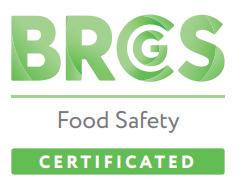

of our produce is grown by AMERICAN FARMERS 99%